'We must reject religious majoritarianism to ride the wave of Asian resurgence'
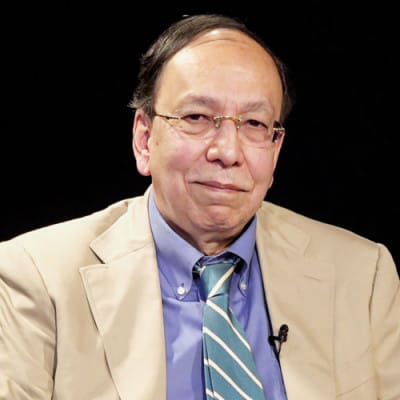
The Daily Star (TDS): Your family was closely involved with the Liberation War of Bangladesh. Could you please provide some insights into this historical involvement?
Sugata Bose (SB): In 1971, Netaji Bhavan played a pivotal role as a center for organizing support activities for the liberation war in Bangladesh. Founded by my father, Sisir Kumar Bose, in 1957, the Netaji Research Bureau at that location served as a beacon of support. The first and second floors housed the Netaji Museum, while the ground floor became a bustling hub for aiding Bangladesh. My mother, Krishna Bose, collaborated closely with the revolutionary Bina Das Bhowmik in this noble endeavor. The premises welcomed numerous freedom fighters from Bangladesh during this critical period. Additionally, my father led the establishment of the Netaji Field Hospital in Bakchara village near the Bongaon border, commencing operations at the end of April. By May, the hospital was up and running, with doctors from Kolkata providing medical assistance to wounded freedom fighters. As a pediatrician, my father extended his services to children in refugee camps. I vividly recall accompanying my father to the Netaji Field Hospital every Sunday during school vacations, witnessing firsthand the hospital's operations and the dire conditions faced by refugees. The bravery of the freedom fighters left an enduring mark on me.
It was probably the last Sunday of November when I went with my father to the field hospital. As the day ended, he suggested we check out the border situation. We took a Jeep and kept driving. After a long journey, the Jeep slowed down near a culvert, and we met some friendly soldiers. They told us we had crossed a long distance, even the no man's land. They warned us of potential danger and suggested we go back. So, without any visas or passports, I found myself in Bangladesh before it became independent.
My father met Bangabandhu on January 17, 1972 in Dhaka, and they had deep conversations. Bangabandhu shared how Netaji had influenced him, his respect for Sarat Chandra Bose, and Huseyn Shaheed Suhrawardy's dream of a United Sovereign Bengal, despite resistance from some Bengali Hindus. Sheikh Mujibur Rahman wept as he uttered, "Amader aar kichhu nai," expressing the profound sorrow he felt upon learning of the brutal repression inflicted upon his people. My father sought to console him, affirming, "Apnader sab aachhe," conveying that nothing was truly lost to a people who had earned their freedom through the sacrifice of their blood.
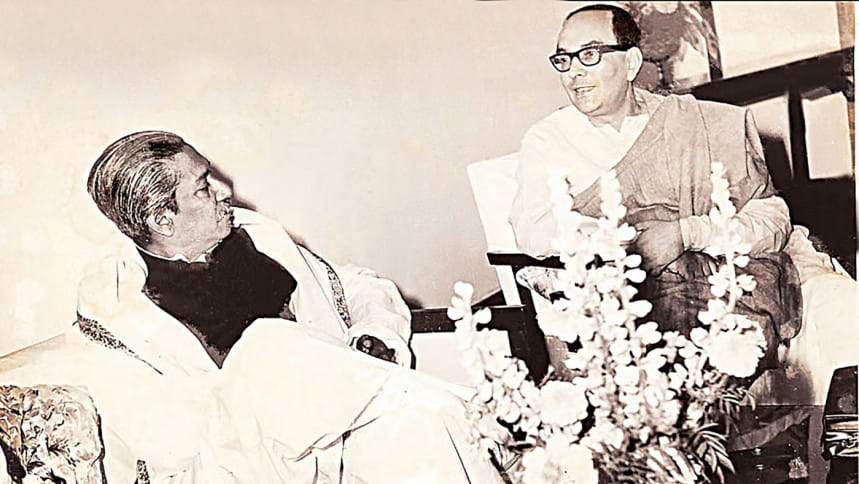
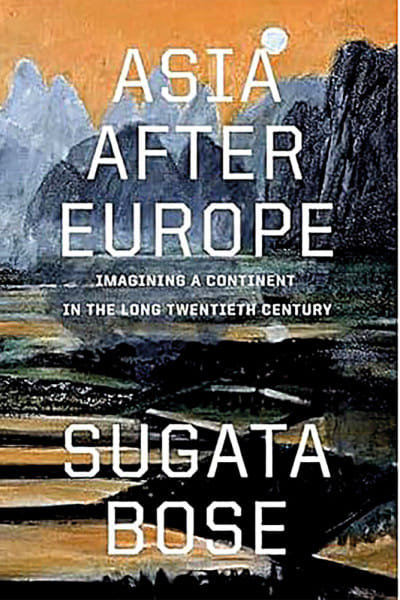
TDS: As a historian, how do you view the Bangladesh's creation through an armed conflict?
SB: I see it as a proud tale, full of sacrifices for the nation. It's essential to note that many battles were fought against European and American imperialism in the 1930s and 1940s. Also, in the 1950s, several Asian and African countries gained independence through warfare. However, the countries that emerged had a certain anxiety about their sovereignty and were reluctant to see their nation divided. If we delve into history, we notice that no country was divided after the 1940s until the 1990s. However, Bangladesh stands out as the only example where an uprising against internal colonialism occurred and succeeded. Therefore, I believe it holds great significance from a historical perspective.
TDS: We have observed attempts by Chittaranjan Das through the Bengal Pact, Netaji Subhas Chandra Bose through revolutionary unity, and later by Sarat Chandra Bose and Huseyn Shaheed Suhrawardy through their united Bengal plan to keep Bengal united, all of which were unsuccessful. Why did their efforts fail?
SB: We inherited a political tradition from Deshbandhu Chittaranjan Das, Sarat Chandra Bose, and Netaji Subhas Chandra Bose, who believed in two principles: equality and unity. They endeavored to unite Hindus and Muslims on the basis of equality. One hundred years ago, Deshbandhu initiated the Bengal Pact, outlining how resources could be distributed equally among Hindus and Muslims. Exactly one hundred years ago, in 1924, the Swaraj Dal emerged victorious in the Kolkata Corporation election. Deshbandhu was elected as the mayor, Suhrawardy as the deputy mayor, my grandfather, Sarat Chandra Bose, as the alderman, and Subhas Chandra Bose as the Chief Executive Officer. Subhas Bose noticed the lack of Muslim representation in the Kolkata Corporation and, when hiring for 33 positions, appointed 25 Muslims, drawing criticism from many Hindus. Mahatma Gandhi and Deshbandhu had to come forward to defend Subhas.
In his autobiography, Bangabandhu particularly emphasized the roles of Deshbandhu and Netaji. Their vision transcended religious lines; they advocated for equal rights for all, yet encountered challenges in gaining widespread support, resulting in elusive power-sharing. However, within our independence movement, Netaji's Azad Hind Fauj exemplified inclusivity, granting equal citizenship rights to Hindus, Muslims, and Sikhs alike.
While we encountered a period of decline two centuries ago, the 21st century offers a chance to reclaim our former glory. To seize this opportunity, rejecting religious majoritarianism is essential. Fostering collaborative relationships among South Asian countries is imperative, followed by enhancing interconnectivity across the Asian region.
Netaji also debunked the fallacious notion of martial races propagated by the British. Despite British claims that only certain ethnic groups were fit for military service, Netaji united Punjabis and Tamils under his leadership, defying stereotypes. He championed women's empowerment, establishing regiments like the Rani of Jhansi Regiment, and fostered unity among Bengalis and non-Bengalis, Hindus and Muslims, men and women.
The solidarity witnessed during the trials of Sehgal, Dhillon, and Shahnawaz in late 1945 and early 1946 underscored the common people's desire for unity, regardless of their different religious identities. However, Congress's leadership failed to ensure equitable power distribution. The ideals articulated by Deshbandhu at the Sirajganj Conference in May 1924 could not be realized, ultimately culminating in the partition of the country along religious lines in 1947.
TDS: Could we achieve communal harmony in the subcontinent after the Partition? How do you assess this?
SB: There have been noticeable improvements in terms of communal harmony, particularly in East Bengal post-independence. The establishment of Pakistan in 1947 marked a significant change, followed by the language movement of 1952 and the electoral victories of the progressive United Front in 1954. This period witnessed the emergence of a new political ethos.
By 1956, voices within the Pakistan Constituent Assembly, including figures like Dhirendranath Dutta and Sheikh Mujibur Rahman, spoke out against communalism. Sheikh Mujib, in particular, highlighted the dangers of labeling Pakistan as an Islamic Republic, foreseeing a precedent that could perpetuate religious divisions. Despite lingering riots post-1947, gradual progress towards communal harmony took root, notably in the two Bengals.
The tumultuous events of 1971, including the crackdown by Pakistani forces on Bengalis, particularly the minority, were setbacks. The recent trends suggest a regression towards communal polarization, especially regarding the situation in India, which is deeply concerning. The rise of religious majoritarianism threatens India's democratic fabric. If priority is given based on religion within a democracy, it undermines true democratic expression.
In a diverse country like India, federalism is crucial. Pakistan's failure to establish true federalism led to Bangladesh becoming a sovereign country in 1971. Preserving the essence of the federal structure is vital for fostering unity within the Indian subcontinent. However, there is growing concern over the trend of over-centralization, with centralized power being seized based on religious doctrine. It is imperative that we contemplate how a new form of politics may be built on the principles of equality and secularism championed by Deshbandhu and Netaji Subhas Chandra Bose in the Indian Subcontinent. A political legacy of anti-communalism is evident in the revered tradition spanning from 'Deshbandhu' to 'Bangabandhu.'
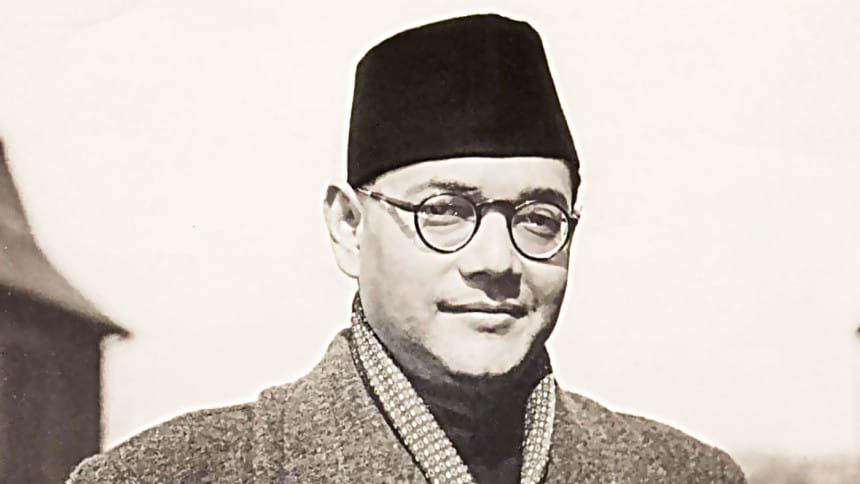
TDS: How can we ensure that Deshbandhu and Netaji's principles remain relevant in today's political landscape?
SB: We must be mindful whenever we discuss Netaji. Many admirers honor him as 'Bir,' recognizing his courageous armed struggles against the British. However, stopping at mere admiration is insufficient. To truly grasp his principles, one must delve deeper. He not only bridged the gap with religious minorities but also empowered them. This principle was also embraced by Bangabandhu. Both Netaji and Bangabandhu proclaimed that Bengal belongs to everyone—Muslims, Hindus, Buddhists, and all others. The notion of majority and minority based on religion was imposed upon us by the British. By steering clear of this, we must vigorously promote the political ideal of equality, as practiced in progressive politics. Only then can we counter religious majoritarianism and foster a diverse subcontinent.
TDS: Our identity tends to be land-centric, but the oceans comprise a significant portion of our planet's geography. How can we broaden our perspective and better appreciate the importance of the oceans?
SB: In my book "The Hundred Horizons: The Indian Ocean in the Age of Global Empire," published in 2006, I delved into the modern history of the Indian Ocean. Prior to my work, historians had primarily explored this subject up to 1750 AD or 1800 AD, often concluding with the onset of British imperialism. This led to the mistaken implication that our oceanic connections were severed during that period. However, my research revealed that communication across the ocean persisted despite imperial occupation.
Furthermore, examining the history of nationalism unveils a broader perspective beyond land-centric narratives, which were not always territorially-bound. For example, consider the Swadeshi movement, which embraced both national and international dimensions. It is crucial to acknowledge these transoceanic connections that have shaped our history.
Netaji Subhas Chandra Bose, for example, led his last armed resistance in South-Eastern Asia, raising the Indian flag on the Andaman Islands in 1945 by uniting those who migrated to Malaya, Burma, and Singapore. Similarly, Mahatma Gandhi's political journey began in South Africa.
In my recent book, "Asia after Europe," published last month, I explore the theme of 'swadeshi internationalism'. For instance, Abanindranath Tagore utilized the Japanese wash color painting technique for his renowned work 'Bangamata,' which was later recognized as 'Bharatmata.' He acquired this technique from the Japanese artist Yokoyama Taikan when the latter visited Kolkata. Such historical exchanges underscore our enduring relations with other cultures, highlighting a crucial aspect that deserves attention in our studies.
TDS: How can the water-sharing issues between India and Bangladesh be resolved?
SB: During my tenure as an MP in India, I served on the external affairs committee. In 2014, we received the initial draft related to the Land Boundary Agreement. Despite an agreement being reached between Indira Gandhi and Sheikh Mujibur Rahman 40 years ago, the Indian parliament had not ratified it. Recognizing an opportunity to strengthen the Bangladesh-India relationship, I took the initiative. Crafting a comprehensive report submitted to the external affairs committee, we navigated the constitutional requirement of a two-thirds majority to unanimously pass the amendment bill.
The scarcity of water remains a pressing issue, yet unresolved. Dialogues are ongoing, and I remain optimistic that we may overcome it through collaborative efforts.
As previously mentioned regarding the Indian Ocean and Bay of Bengal, it's crucial to focus on the eastern regions of India and Bangladesh to explore the potential for extending our communication networks with eastern Asia and Southeast Asia. This strategic approach could significantly enhance our economic prospects. Notably, significant progress has been made in Matarbari, where a deep-sea port near Chattogram is being developed through collaboration between Japan and Bangladesh. Bangladesh has warmly extended an invitation for India to also utilize this port facility. Viewing this opportunity through a broader lens, it's evident that Asia is experiencing a period of awakening. By fostering collaboration between the neighboring eastern zones of Bangladesh and India, we can collectively reap the benefits of this emerging trend. Therefore, considering these factors, it becomes clear that resolving issues such as water management and river disputes is essential for fostering regional cooperation and prosperity.
TDS: As the Indian national election approaches, people wonder which way India's politics is heading and how it will affect the rest of the subcontinent.
SB: Presently, India grapples with religious majoritarianism and excessive centralization. As the upcoming election looms, it appears that the incumbent party is positioned for another victory. However, the failure of opposition parties to forge robust unity raises doubts about their electoral prospects. If religious majoritarianism continues to gather momentum, it will present significant challenges to inter-country relationships within the subcontinent. Therefore, adopting a forward-thinking approach and exploring avenues to bolster the anti-communal political movement is imperative to establish the true essence of democracy in India.
A new opportunity has emerged, with the entire Asian continent experiencing a resurgence. While we encountered a period of decline two centuries ago, the 21st century offers a chance to reclaim our former glory. To seize this opportunity, rejecting religious majoritarianism is essential. Fostering collaborative relationships among South Asian countries is imperative, followed by enhancing interconnectivity across the Asian region. Achieving this will pave the way for what could be dubbed the Asian Century.
The interview was taken by Shamsuddoza Sajen of The Daily Star.

 For all latest news, follow The Daily Star's Google News channel.
For all latest news, follow The Daily Star's Google News channel. 


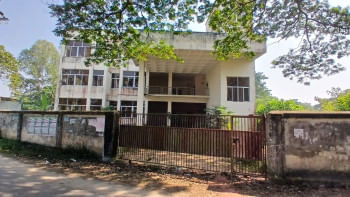
Comments